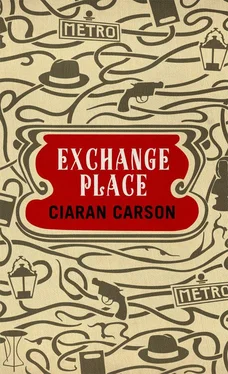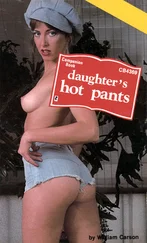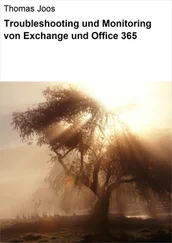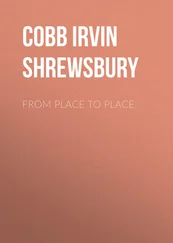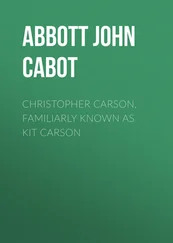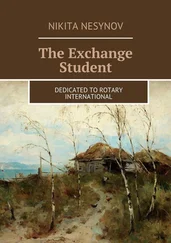Benjamin had a heart condition, and his ascent through the mountains was arduous. He was carrying a heavy, black leather briefcase which contained his new manuscript. Timing himself with his gold watch, he would stop every ten minutes to rest for one minute. At the time Fittko had only a vague idea of Benjamin’s reputation, and to her the briefcase was a superfluous burden, ‘a monstrosity’. But he would not be parted from it. He dared not lose it, the manuscript was more important than himself, he said. Of course we all know what happened then, said Harland, Benjamin took an overdose of morphine when he arrived in Portbou, and the manuscript vanished. Years later scholars searched high and low in Portbou for the manuscript, descending even into the catacombs of the town. But it was never found, though the briefcase was entered in the death register, with the notation, ‘and some papers of an unknown content’. So the briefcase became a relic made all the more potent by its disappearance. There’s another twist not mentioned by Fittko, said Harland. Benjamin was buried not as a Jew but as a Christian, in the Catholic cemetery of Portbou; the death certificate was made out in the name of Doctor Benjamin Walter, and the parish records contain a receipt for payment of a Mass for the dead man’s soul, and the rent of the cemetery niche. So in death Benjamin became someone else, a reversal of his name, said Harland.
Death is the sanction for everything that the storyteller can tell, Benjamin has written elsewhere. And I reflected, in this hour granted to me by an arbitrary act of temporal authority, on Benjamin’s saying that Marcel Proust was most aware of his approaching death when he was writing, as the syntax of his prose enacted, step by step, parenthesis by parenthesis, his fear of suffocating through asthma: a counterpoint of ageing and remembering, not what he experienced, but what he recollected. A fugue in other words, left necessarily incomplete by the author’s death; Proust, when alive, and dying, was constantly revising in the light of what he had written since, and there could be no end to the enterprise. And when Benjamin suggests that Proust’s celebrated involuntary memory is much closer to forgetting than to remembering, I think of how little remains to me of my times with Harland, from sober encounters to drunken, ecstatic nights when we lived life to the full, whose details were almost entirely forgotten by us the next day, and faded into nothingness thereafter. When Proust in a well-known passage described the hour that was most his own, he did it in such a way that everyone can find in it his own existence. We might almost call it an everyday hour, a lost twittering of birds, a breath drawn at the sill of an open window. And I remember sunlight falling through stained glass windows at a certain hour of an afternoon, what year it is I do not know, and sunlit bubbles rising through a glass of beer as Harland raises the glass to me and to himself. What did I, Kilfeather, really know of Harland? I did not even know where he came from. When I would hazard a question as to his previous existence, the answers were always ambiguous or vague. We lived in a present of which I remember only some fragments. I see him painting me, or painting himself, and can no longer remember which was which.
It is late at night, and it is dark, but a shaft of moonlight falls through the dormer window of the studio, illuminating Harland’s pale face as he draws on the Black Rose, then hands it to me. We listen to the Albert Clock toll the hour. Twelve strokes. Ask not for whom the bells tolls, I said. Not quite, said Harland, never send to know for whom the bell tolls, it tolls for thee. John Donne, ‘Meditation XVII’. He got up from the chair, lifted a book from a shelf, and riffled through the pages. Ah yes. And just before that, we have this passage: All mankind is of one author, and is one volume; when one man dies, one chapter is not torn out of the book, but translated into a better language; and every chapter must be so translated; God employs several translators; some pieces are translated by age, some by sickness, some by war, some by justice; but God’s hand is in every translation, and his hand shall bind up all our scattered leaves again for that library where every book shall lie open to one another. One John to all the others, said John Harland.
Before Kilpatrick knew it, Paul Gordon vanished. A dim light came on and Kilpatrick saw John Bourne for the first time in, what was it? ten, twenty, thirty years. He was seated in a high-backed armchair. He seemed scarcely aged. The grey Prince of Wales check suit he was wearing was one that Kilpatrick knew from before. Bourne was wearing a brown fedora hat with the brim pulled over his eyes and he wore a wry smile. Seeing is believing, is it not, said Bourne. You have been looking for me, and what do you see? Something that I always was, albeit that for some time I did not know that thing. And who are you? he said to Kilpatrick. I am John Kilpatrick, said Kilpatrick. That remains to be seen, said John Bourne. We come to everything in time, and what is time? As John Donne would have it, is it in ‘Meditation XIV’? If we consider time to be motion, then it has three stations, past, present and future; but the first and last of these is not, because one is not now and the other is not yet; and that which you call present, is not now the same that it was, when you began to call it so. So we flit eternally into the future, infinitesimal split second by second. In like manner a hierarchy of angels can dance upon a pinpoint. What are you then? said Kilpatrick. I am you, I am anybody, said Bourne. Before I lost my sight I was blind, and now I see. I see the legions that are each of us hovering about us as if watching over us, for all that they are blind to our existence. Only I have retrospection for them, and that enables me to see. But let me show you who you are. Bourne raised himself and gestured to a cheval mirror that stood beside him. What do you see? said Bourne. Kilpatrick walked over to the mirror and regarded himself. I see John Kilpatrick, he said, the man I am. Well and good, said Bourne, but what do you see behind you in the mirror? I see a door, said Kilpatrick. To see you we must go and open it, said Bourne.
They walked to the door which led them to a large bright chamber. Welcome to the Memory Palace, said Bourne. He gestured to the shelves and alcoves which lined the room, each of them filled with a miscellanea of objects. Third shelf, top right, you’ll see a tin toy submarine, a little rusted. That was Stanley, who thought himself someone else until he touched the toy, or it him. This alcove here on the left, a bookcase made out of an orange crate, you can still smell the oranges, that was Burgess, same story. He swept his arm around the room. Kilpatrick saw an old Clydesdale radio, a red and white enamel tricycle, a pottery owl, a cricket bat, a cast-iron mangle, a frayed blanket. There were hundreds of objects arrayed in no apparent order. I know where everything is, said Bourne. All the things you see here I see too, because I link them to the people, and their stories of who they were, and who they might have been. And I see the things too because I have touched them all, and they me, and I know their aura. For all of them were loved deeply in their day, and were alive to them that loved them. So let me show you who you were, because you are what you always were. Next room.
There you are. Raleigh tourer, 1959 model, Sturmey-Archer gears, said Bourne, I think you’ll find it all in order. Kilpatrick’s heart stopped for a second as he looked at the bicycle. He recognized it instantly in the deep blue enamel livery set off by the whitewall tires, and the proud worn leather of the seat, and the butterfly curve of the handlebars, everything about it that he so loved, and he was thirteen again. What do you see? said Bourne. I see a boy of thirteen, said Kilpatrick. It is a beautiful June morning with fair weather clouds scudding in the blue sky and I am riding my bicycle down a country lane. Suddenly I feel as if I have lived this moment before, in the same place, though I have never travelled this road before. An extraordinary feeling of stillness comes upon me. This summer afternoon has always existed. Everything is quivering and streaming upwards in a kind of ecstasy, my body is vibrating to everything around me, said Kilpatrick, and I am unbearably happy because in this endless moment I do not know who I am because I am everything around me.
Читать дальше
